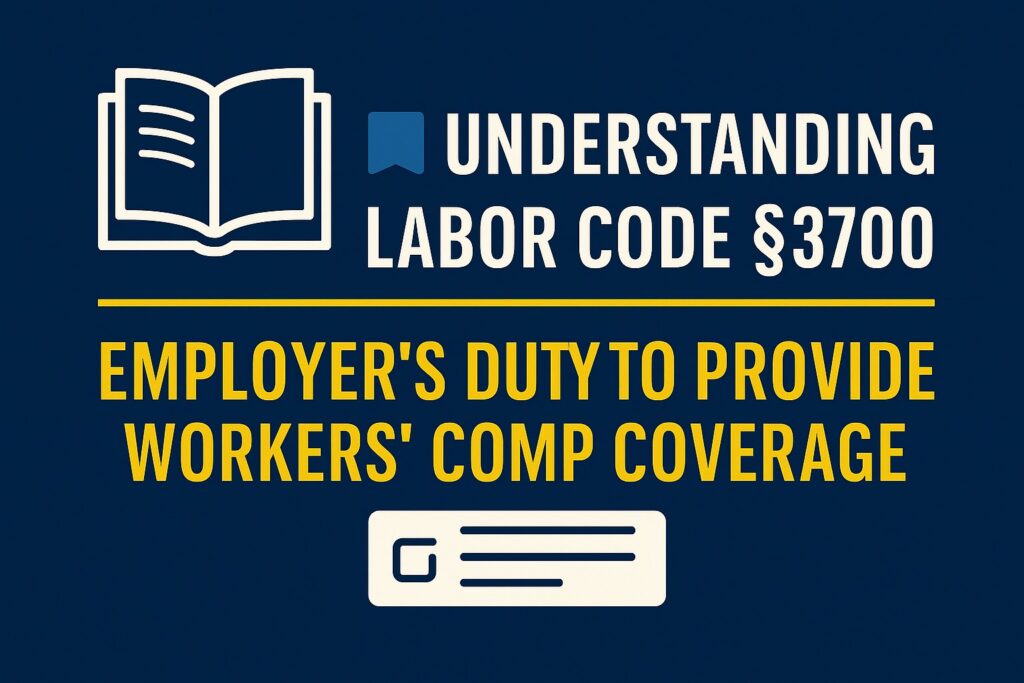
In California, Labor Code §3700 makes it absolutely clear: Every employer is legally obligated to provide workers’ compensation insurance. Whether through a policy with a licensed insurer or self-insurance approved by the state, coverage is not optional—it’s the law.
If you’re injured at work and discover your employer didn’t carry coverage, your case becomes more complex—but you still have powerful rights.
The Law (Labor Code §3700 – Text)
“Every employer except the state shall secure the payment of compensation in one or more of the following ways:
(a) By being insured against liability to pay compensation by one or more insurers duly authorized to write compensation insurance in this state.
(b) By securing from the Director of Industrial Relations a certificate of consent to self-insure…”
This duty applies to every employer in California, including small businesses and those with just one employee.
What Happens if Employers Fail to Provide Coverage?
If your employer violates §3700 and fails to secure workers’ comp insurance:
- You may file a claim with the Uninsured Employers Benefits Trust Fund (UEBTF).
- Your employer may face criminal penalties and civil fines of up to $100,000.
- You may have the right to file a civil lawsuit against your employer, outside the typical workers’ comp system.
Want to Learn More?
Labor Code §3700 is just one of many critical laws that protect injured workers in California. To get the full picture, check out our comprehensive guide:
👉 🔝 Top 25 California Labor Codes for Workers’ Compensation (2025 Guide)
Final Thoughts
At Employees First Labor Law, we pursue every available remedy—including claims through UEBTF and civil court—when your employer drops the ball on coverage. We fight to make sure you don’t pay the price for their legal violations.



